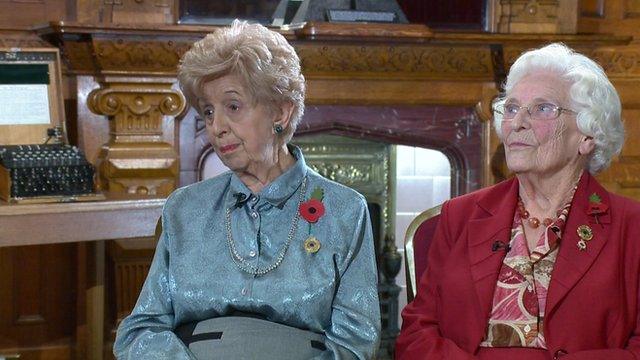Woman's 'honour' over VJ Day role 75 years ago
- Published
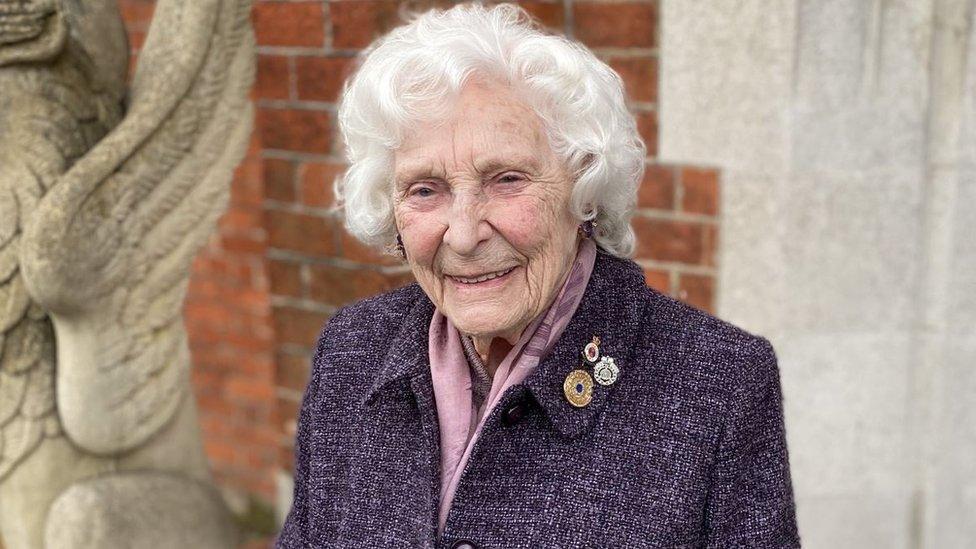
Charlotte 'Betty' Webb said celebrations in Washington to mark the original VJ Day were noisy
A British woman who helped the USA with Japanese codes in World War Two said she was "honoured" to play a part in the run-up to victory 75 years ago.
Saturday marks three-quarters of a century since Victory over Japan (VJ) Day, when the nation surrendered, ending the War.
Charlotte "Betty" Webb was working at the Pentagon in Washington at the time.
But the 97-year-old said the atomic bombs dropped on Japanese cities to end the conflict were "utterly awful".
Mrs Webb said she had no idea the Americans planned to use that kind of weapon on Hiroshima and Nagasaki.
The Shropshire native went to work at the Pentagon in 1945.
She had already spent four years at UK code-breaking centre Bletchley Park, which she joined as an 18-year-old member of the Auxiliary Territorial Service (ATS), having impressed interviewers, she said, with her knowledge of German.
When the War ended in Europe in May of 1945, she was sent to America to continue, she said, "my Bletchley work there, which was to paraphrase and transcribe the already decoded Japanese messages".
She said she was the only member of the ATS to be sent there and described going to Washington as a "tremendous honour".
Like her colleagues, she had signed the Official Secrets Act and said: "One didn't talk to other rooms about anything. So... I didn't really know what was going on to any large extent."
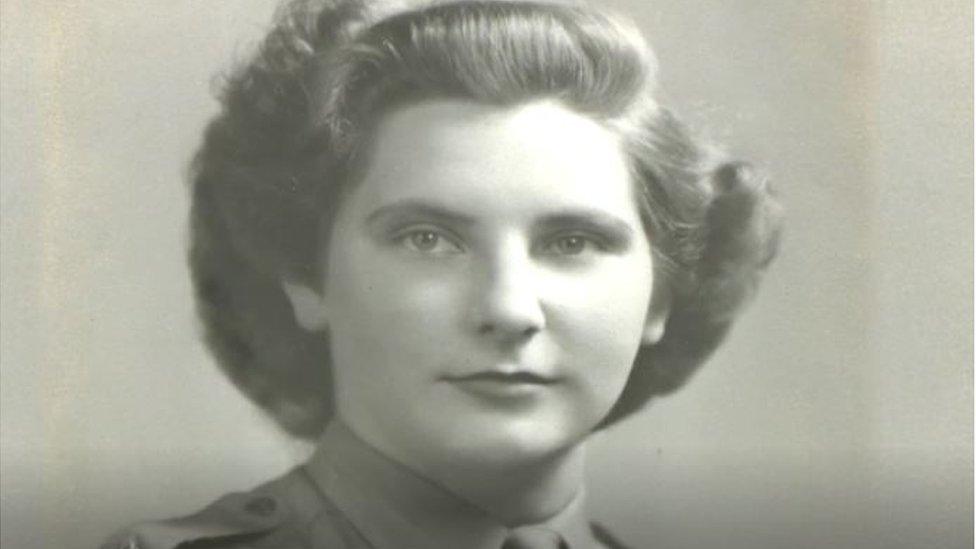
Mrs Webb went to work at the Pentagon when she was 22 years old
Mrs Webb, who now lives in Wythall, Worcestershire, said "Washington went completely mad" when Japan surrendered.
She remembered she had been helping staff tidy away stock at a British Army Store in the American capital when the news was announced and everyone cheered.
She said: "I've never seen so many people turn out and they all fixed the horns on their cars to make as much noise as they could."
Mrs Webb also described people climbing on the railings around the White House, hoping to catch a glimpse of the President, but said she was too short to see for herself.
It was later that the news of the people killed and mutilated by the atomic bombs came through.
She said: "We were delighted that the War was over, it's only afterwards that we began to realise what a ghastly thing it was.
"It's a terrible thing for one human to do to another."
After the War, she said it took three months to arrange passage back to the UK and described the four-day voyage home on a troop ship as "very hairy" because of all the mines left in the Atlantic.
Initially she returned to work at Bletchley Park, but when it closed down, she went back to Shropshire to work as a secretary at Ludlow Grammar School.
She said she believed she got the job because she knew the headmaster, who had also worked at Bletchley Park.
But she added due to the Official Secrets Act they were not only prevented from talking about their past work, they could not even acknowledge they knew each other until restrictions were lifted - in 1975.

Follow BBC West Midlands on Facebook, external, Twitter, external and Instagram, external. Send your story ideas to: newsonline.westmidlands@bbc.co.uk , external
- Published14 August 2020

- Published9 August 2020
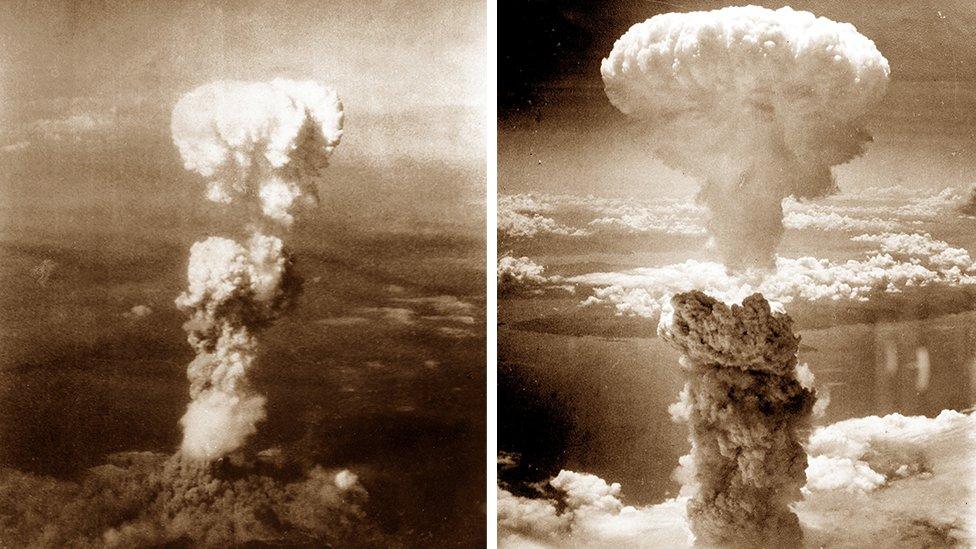
- Published5 August 2020
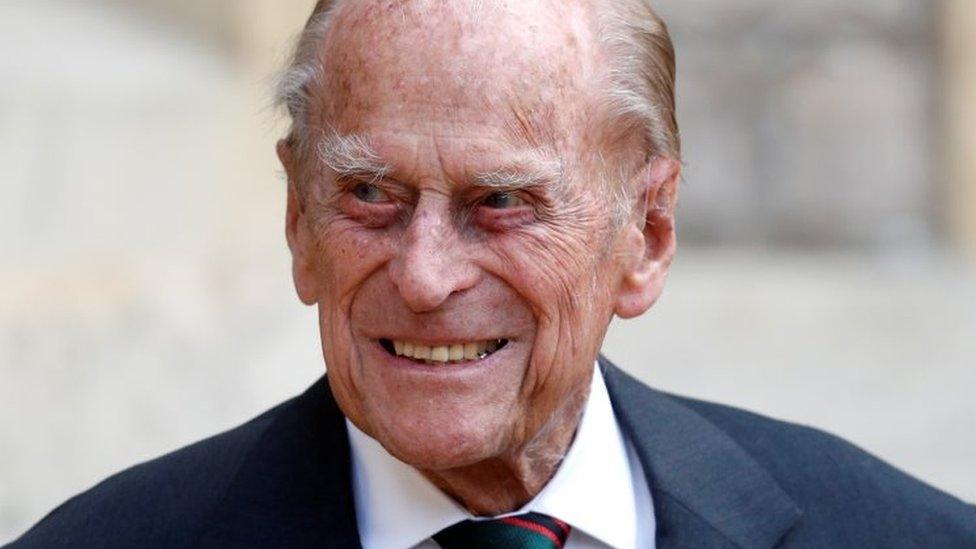
- Published8 May 2020
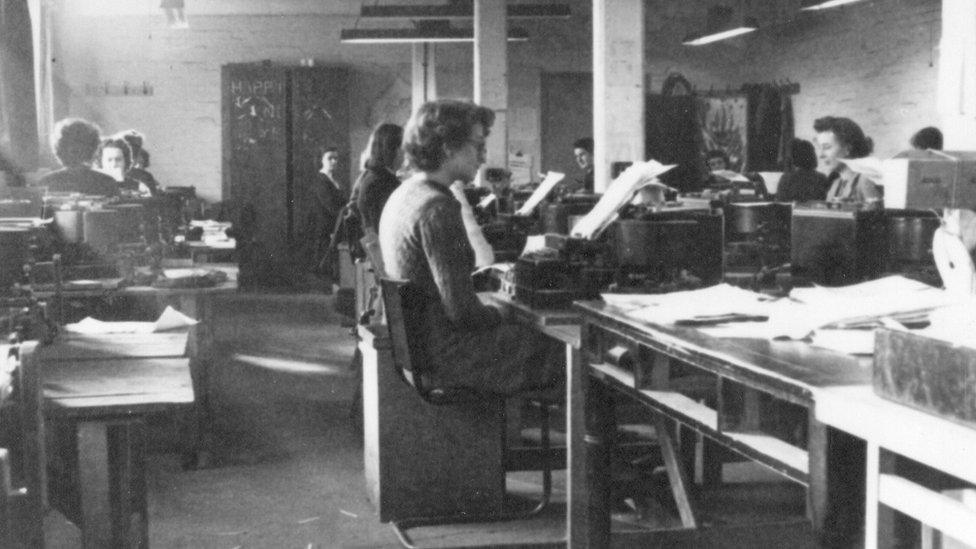
- Published10 November 2013
